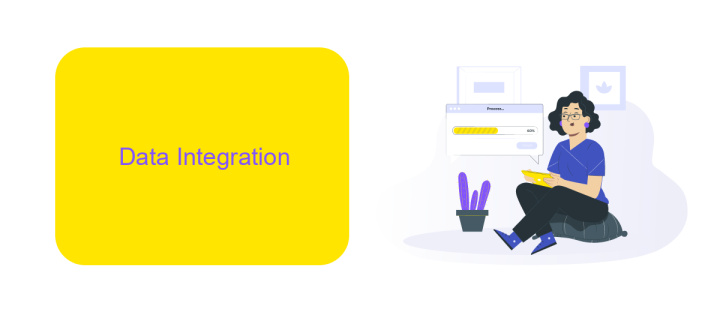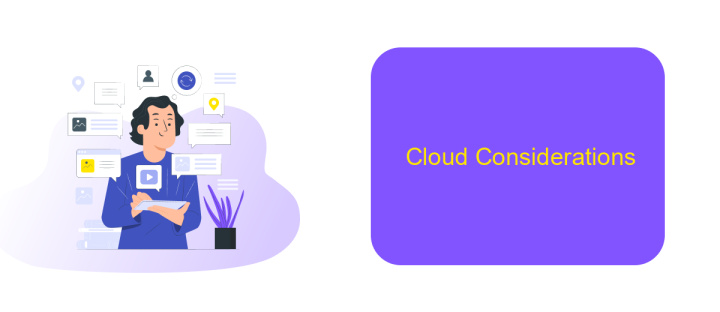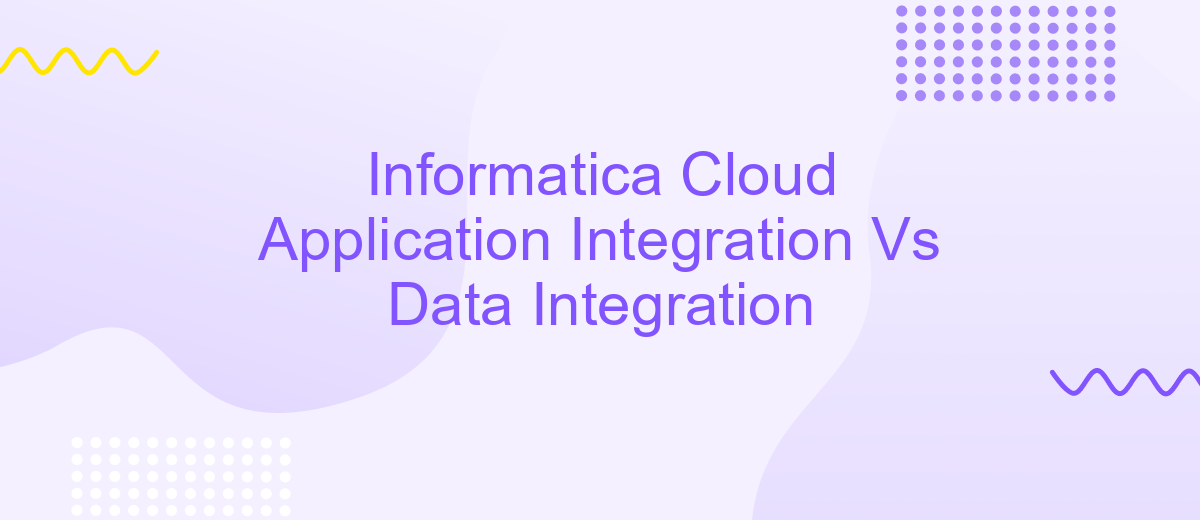Informatica Cloud Application Integration Vs Data Integration
Informatica offers robust solutions for both Cloud Application Integration and Data Integration, each addressing distinct business needs. While Cloud Application Integration focuses on real-time data synchronization and process automation across various applications, Data Integration emphasizes the consolidation and management of data from diverse sources. This article explores the key differences, benefits, and use cases of these two essential Informatica services.
Introduction
In the rapidly evolving world of data management, organizations are increasingly seeking robust solutions to handle their integration needs. Informatica offers two distinct yet complementary services: Cloud Application Integration and Data Integration. Understanding the differences and use cases for these services is crucial for businesses aiming to optimize their data workflows and enhance operational efficiency.
- Cloud Application Integration: Facilitates real-time data synchronization between applications, enabling seamless communication and process automation.
- Data Integration: Focuses on batch processing and ETL (Extract, Transform, Load) operations to consolidate data from disparate sources into a unified repository.
Both services play a pivotal role in modern data strategies, but their applications differ significantly. For instance, Cloud Application Integration is ideal for scenarios requiring immediate data updates and interaction between multiple cloud applications. In contrast, Data Integration is better suited for tasks involving large-scale data consolidation and historical data analysis. Tools like ApiX-Drive can further streamline these processes by offering easy-to-use interfaces and pre-built connectors, making integration tasks more accessible and manageable.
Data Integration

Data Integration is the process of combining data from different sources to provide a unified view. It involves the collection, transformation, and consolidation of data to ensure that it is accurate, consistent, and accessible. This process is essential for businesses to make informed decisions, as it allows for the seamless sharing of information across various departments and systems. Effective data integration helps in reducing data silos, improving data quality, and enhancing operational efficiency.
One of the tools that facilitate data integration is ApiX-Drive. This service allows users to automate data transfer between various applications and systems without requiring any coding skills. With ApiX-Drive, businesses can set up integrations quickly and easily, ensuring that their data is always up-to-date and synchronized. This not only saves time but also reduces the risk of errors, making data more reliable and actionable. By leveraging such tools, organizations can achieve a more cohesive data environment, driving better business outcomes.
Application Integration

Application Integration focuses on seamlessly connecting various applications within an organization to streamline processes and improve data flow. This type of integration ensures that different software systems can communicate effectively, reducing the need for manual data entry and minimizing errors.
- Real-time Data Synchronization: Ensures that all connected applications are updated simultaneously, providing accurate and up-to-date information.
- Automated Workflows: Allows for the creation of automated processes that trigger specific actions based on pre-defined rules.
- Scalability: Easily add or modify integrations as business needs change, without significant disruptions.
Services like ApiX-Drive facilitate the setup of application integrations by offering user-friendly tools and pre-built connectors for a wide range of applications. This allows organizations to quickly implement integrations without the need for extensive coding knowledge. With ApiX-Drive, businesses can enhance operational efficiency and ensure that their various software systems work together harmoniously.
Cloud Considerations

When considering cloud-based solutions for application and data integration, several factors come into play. Scalability, security, and ease of use are paramount for businesses looking to streamline their operations and data management.
Cloud Application Integration often focuses on connecting various SaaS applications, enabling seamless data flow and process automation. On the other hand, Data Integration typically involves consolidating data from different sources into a unified repository for analysis and reporting. Both approaches have their unique cloud considerations that need to be addressed.
- Scalability: Ensure the solution can handle growing data volumes and increasing numbers of applications.
- Security: Look for robust encryption and compliance with industry standards.
- Ease of Use: User-friendly interfaces and minimal coding requirements are crucial for quick deployment.
- Cost: Evaluate the pricing models to ensure they align with your budget and usage patterns.
Services like ApiX-Drive can simplify the integration process by offering pre-built connectors and automation tools, reducing the need for extensive technical expertise. This can be particularly beneficial for small to medium-sized enterprises looking to optimize their cloud integration strategies without significant investment in IT resources.
Conclusion
In conclusion, Informatica Cloud Application Integration and Data Integration each offer distinct advantages tailored to specific integration needs. Application Integration excels in real-time data processing and connecting diverse applications, making it ideal for dynamic and complex workflows. On the other hand, Data Integration is designed for bulk data movement, transformation, and synchronization, which is crucial for maintaining data consistency across systems.
Choosing between these two solutions depends on your organization's specific requirements. For businesses requiring seamless and automated integration processes, services like ApiX-Drive can significantly simplify the setup and management of integrations. By leveraging such tools, organizations can ensure efficient and reliable data and application integration, ultimately driving better business outcomes. The key is to assess your integration needs carefully and select the solution that aligns best with your operational goals.
FAQ
What is the primary difference between Informatica Cloud Application Integration and Data Integration?
Can Informatica Cloud Application Integration handle large volumes of data?
How does Informatica Cloud Data Integration manage data quality?
Is it possible to automate workflows using Informatica Cloud Application Integration?
What are the alternatives for automating and setting up integrations without deep technical knowledge?
Routine tasks take a lot of time from employees? Do they burn out, do not have enough working day for the main duties and important things? Do you understand that the only way out of this situation in modern realities is automation? Try Apix-Drive for free and make sure that the online connector in 5 minutes of setting up integration will remove a significant part of the routine from your life and free up time for you and your employees.

